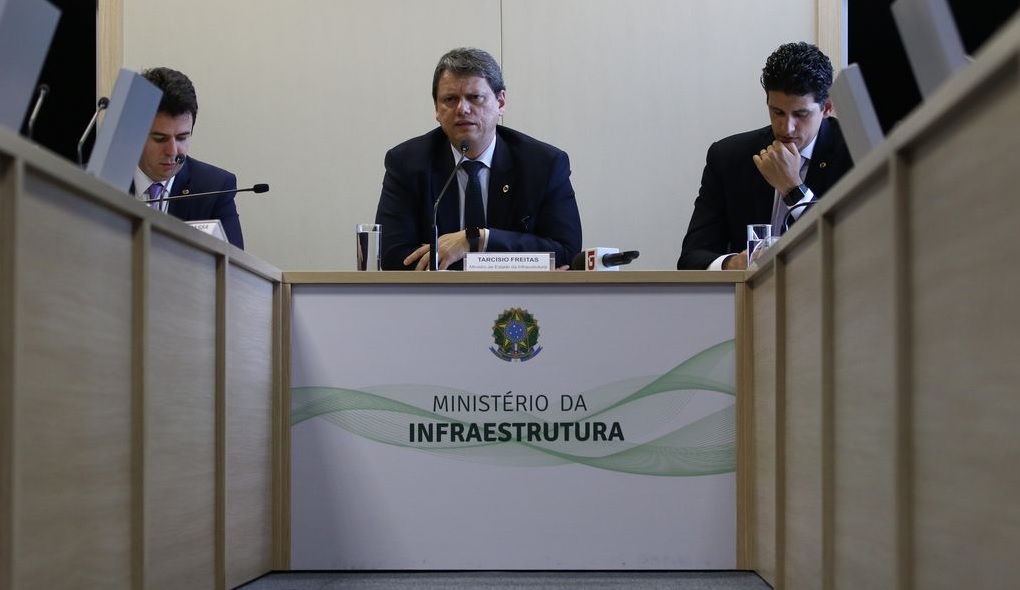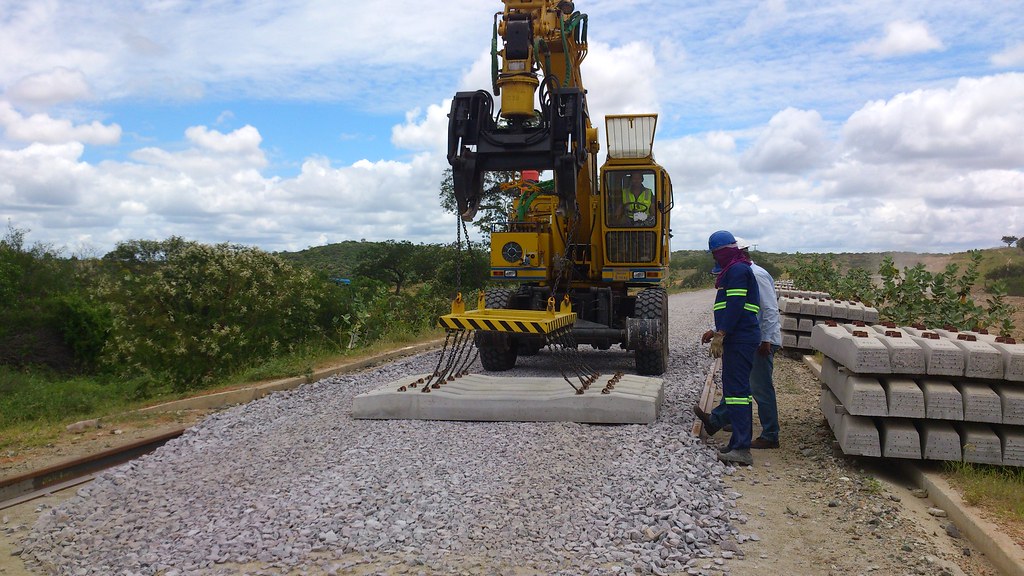RIO DE JANEIRO, BRAZIL – The Minister of Infrastructure, Tarcísio Gomes de Freitas, said yesterday, December 13th, that the government plans to hold sales auctions of between 40 and 44 infrastructure assets next year. Projects for the concession of ports, airports, highways, and railroads are expected to raise R$101 billion (US$25 billion) in investments during the contract period.

Among the projects is the concession of 22 airports (divided into three blocks) to the private sector, seven highways, nine port terminals, two railroads, and the early renewal of four rail freight transport contracts.
During a press conference on Friday afternoon, the minister introduced the balance of the portfolio’s actions in 2019. In total, 27 assets have been sold, which should lead to R$9.4 billion in investments and R$5.9 billion in grants.
“The year was very interesting, a good year for infrastructure in which we managed to do what was planned. We were able to continue some aspects that were in progress and we were able to structure others,” said the minister. “The concession program is going to be a success and it will be a success because the conditions we are offering have no competition in other parts of the world”.
New Dutra highway
The minister said that the New Dutra re-bidding will be the highlight of next year. The current concession expires in early 2021, but the government intends to hold the auction in 2020. The project is expected to raise investments of R$13 billion. “We have a great chance of raising revenue from grants, but this is not our obligation. We are granting concessions to generate investments,” he said.
The minister also highlighted the BR-163 highway concession between Mato Grosso State and Pará State. The highway paving was completed this year by the federal government. The concession to the private sector of 970 kilometers between Sinop (Mato Grosso) and Miritituba (Pará) is expected.
The highway has become an important outflow route for Mato Grosso’s agricultural production. According to the minister, paving will lead to a boost in the efficiency of cargo transport in the region and an increase in productivity.
“The paving of BR-163 represents an increase in flow efficiency. Now we will know what day the cargo is loaded and what day it will unload at the port,” he said. “Today you have 15 million tons of installed capacity at the port of Miritituba and a number of projects that are in line to be installed. We are going to greatly increase capacity”.
In addition to BR-163, the government will also auction BR-101, in Santa Catarina State. The privatization auction is scheduled to take place on February 21st. The 220-kilometer stretch is located on the state border with Rio Grande do Sul State.
Railways
In terms of railways, the focus is on the West-East Integration Railway (FIOL) concession, in the stretch between Ilhéus and Caetité, both in Bahia State; and the Ferrogrão concession, in the stretch of 1,142 km between Lucas do Rio Verde (Mato Grosso) and Miritituba (Pará).

“Ferrogrão is a more efficient alternative from the environmental and energetic point of view for the flow of this freight from Mato Grosso,” said Freitas, who highlighted the possibility of reducing the cost of rail freight due to competition with new operators.
In the balance of actions this year, the minister emphasized the BR-364/365 concession, in the 437 km stretch connecting Jataí (Goiás) and Uberlândia (Minas Gerais), the North-South Railway central branch concession, the concession of 12 port terminals and also of 12 airports, six in the Northeast, four in the Center-West and two in the Southeast.
Concessions experiencing issues
The minister commented on concessions that are facing issues, such as the Viracopos airport in Campinas (São Paulo), in which the National Civil Aviation Agency (ANAC) initiated forfeiture proceedings against the concessionaire. “I think we are closer to a solution […] it seems to me that now they are already signaling for the return,” he said.
Freitas also mentioned the case of BR-040 and the Transnordestina Railroad. The company that manages the 936.8 km stretch of BR-040 between Brasília (Federal District) and Juiz de Fora (Minas Gerais State) wants to give the concession back to the federal government. In the case of Transnordestina, the National Agency and Land Transport (ANTT) also seeks the forfeiture of the contract.
“This year we managed to make progress in these regulations. The re-bidding decree was issued, as were the two resolutions by the regulatory agencies that govern the way in which the procedures will be conducted. The first request for return, which is the BR-040, will be incorporated and I now have indications that other concessionaires will follow the same path. We will start working on these restructurings and place these projects back in our portfolio,” he said.
International shipment
The minister also mentioned the government’s decision to extinguish the additional US$18 fee on the international boarding fee. According to the minister, the measure was not taken this year because it had not been included in the budget.
Established in 1999, the tax is paid by passengers traveling abroad and charged with the boarding fare, representing one of the revenue sources for the National Civil Aviation Fund (FNAC), which finances improvements in airport infrastructure.
“Ending the tax implies foregoing revenue, but it is something that makes sense,” he said. “The tariff will end. The issue is for us to gauge this impact on the budget law. This impact was not provided for in the 2020 LOA [Annual Budget Law], but by 2021 this will end”.
Tarcísio also said that the government is still studying an alternative for INFRAERO, after the privatization of airports managed by the company. “There is a list of possibilities, it can be part of the administration of Alcântara, after the Technological Safeguards agreement, it may establish agreements for the administration of regional airports, it can generate revenue from the provision of services,” he said. “There is a strong chance of the company being restructured to reach a market segment that it is not currently achieving”.
Source: Agência Brasil

